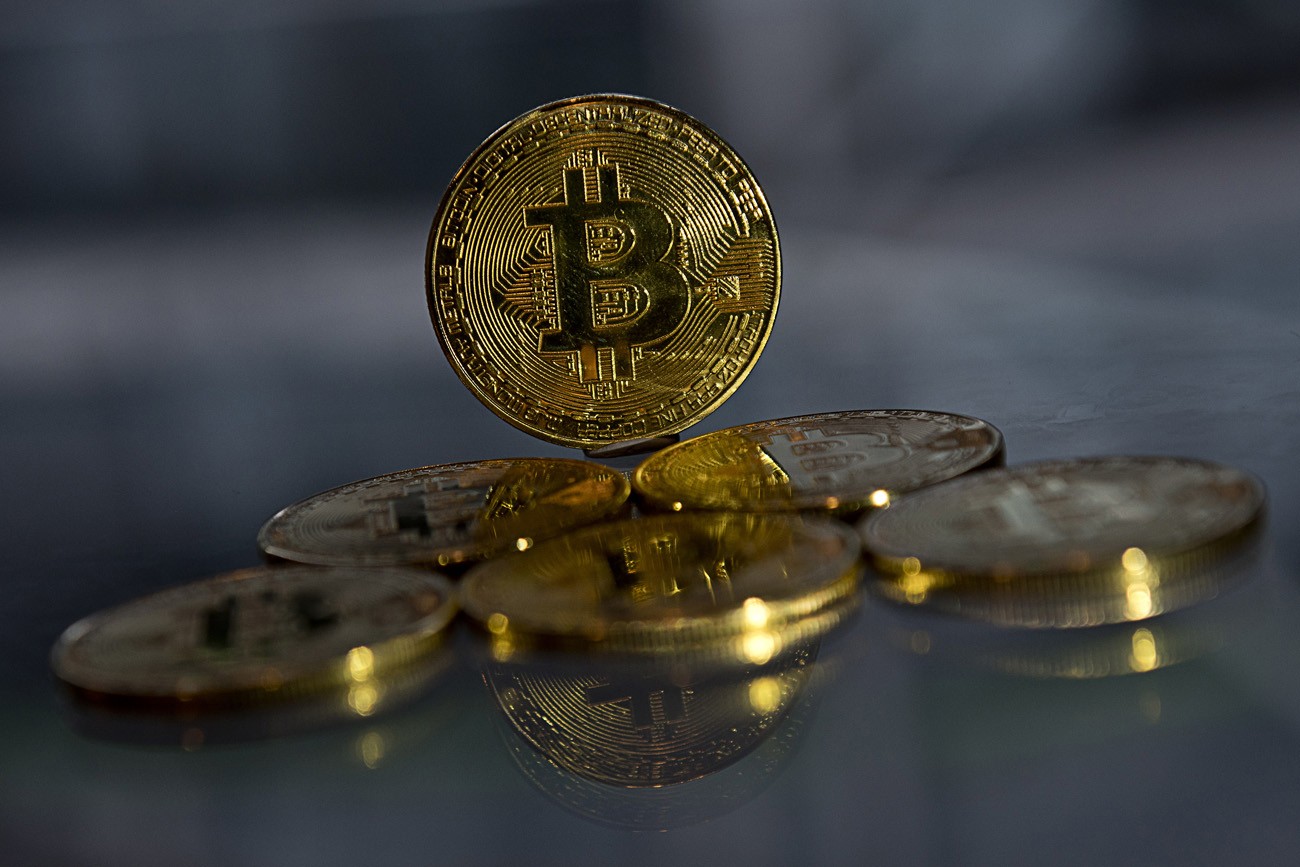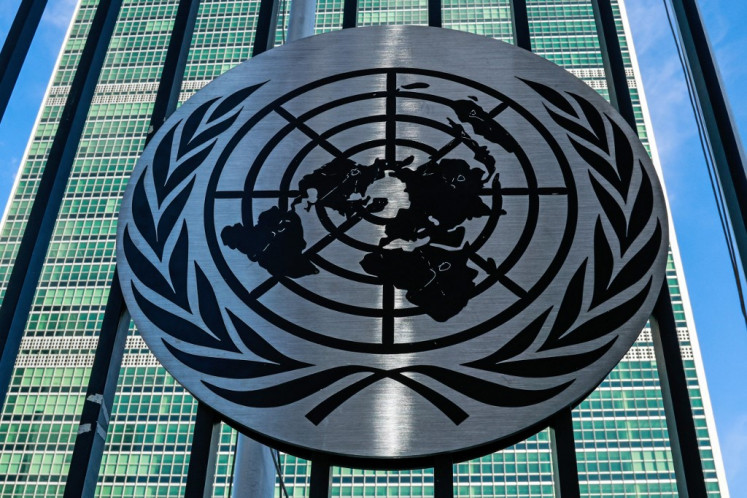Popular Reads
Top Results
Can't find what you're looking for?
View all search resultsPopular Reads
Top Results
Can't find what you're looking for?
View all search resultsTougher rules for cryptocurrencies urged to guard investors
The huge theft of cryptocurrency from major exchange operator Coincheck Inc. has prompted increasing calls for stronger regulations on virtual currency transactions.
Change text size
Gift Premium Articles
to Anyone
 Gold plated souvenir Bitcoin coins are arranged for a photograph in London on Nov. 20. Bitcoin, a type of cryptocurrency, uses peer-to-peer technology to operate with no central authority or banks. Bitcoin's recent rise and booming investor interest is forcing the regulatory and stock market authorities to formulate an official position on bitcoin and other virtual currencies, which are controversial not only because of their speculative nature, but are also seen as vehicles for illegal activities.
(AFP/Justin Tallis)
Gold plated souvenir Bitcoin coins are arranged for a photograph in London on Nov. 20. Bitcoin, a type of cryptocurrency, uses peer-to-peer technology to operate with no central authority or banks. Bitcoin's recent rise and booming investor interest is forcing the regulatory and stock market authorities to formulate an official position on bitcoin and other virtual currencies, which are controversial not only because of their speculative nature, but are also seen as vehicles for illegal activities.
(AFP/Justin Tallis)
V
irtual currencies have taken hold among the public, with the overall market currently valued at about ¥44 trillion (US$400 billion). Reviewing regulations on virtual currencies from the perspective of protecting investors is an urgent task.
Under the revised law on fund settlements and other regulations, virtual currency exchange operators are required to:
■ Register with relevant authorities
■ Explain risks to customers
■ Manage customer assets separately from their own assets
■ Verify the identities of customers when they open accounts
If a violation occurs, the Financial Services Agency takes administrative measures such as issuing a business improvement order.
Japan has taken the lead among advanced nations in regulating cryptocurrencies, including by introducing a registration system for exchange operators. However, the latest incident sheds light on the issues that remain.
One of them is how to protect users.
In the case of deposits, a scheme exists in which deposits of up to ¥10 million plus interest per person are protected under the Deposit Insurance Law. In the case of stocks, securities companies are required to separately manage customer assets such as stocks and money under the Financial Instruments and Exchange Law.
If a customer’s assets are not smoothly paid back under these schemes, a system exists in which a fund established by relevant industries is in principle used to pay back up to ¥10 million per depositor.
However, for virtual currencies, no similar relief programs exist to protect customers against such events as an exchange going bankrupt.
On Tuesday, Coincheck submitted a business improvement plan to the FSA. The company has so far announced a plan to reimburse about ¥46 billion to its clients from its own funds, but when the refunds will take place is unclear.
Virtual currencies are de facto financial instruments used for speculation, but regulations on unfair transactions such as insider trading are nonexistent. Experts are calling for strengthening regulations on virtual currencies in response to the latest incident.
Kyoto University Prof. Naoyuki Iwashita said, “To protect users, the government should consider making virtual currency exchange operators thoroughly implement the separate management of assets and introduce regulations on market manipulation and insider trading.”
Yukio Noguchi, an advisor to Waseda University’s Institute for Business and Finance, said, “It’s worth considering the introduction of regulations on margin trading, which allows traders with only a small amount of money to trade large amounts.”
Many object to banning
However, many oppose introducing tough regulations like those in China, where virtual currency trading is effectively prohibited.
In Japan, many people have already invested in virtual currencies. “Virtual currencies have spread so much that it’s unrealistic to prohibit their exchange, because it could infringe on property rights,” Iwashita said.
Furthermore, the blockchain technology that underpins virtual currency transactions can be used in various fields, including bank transfers and real property registrations. There are expectations within the government that the growth of the virtual currency market could drive the development of blockchain technology, and growth in the Japanese economy.
To achieve such a virtuous cycle, sound market development is needed. It is therefore necessary to develop rules that protect users and prevent unfair acts while paying heed to technological innovations.
This article appeared on The Japan News newspaper website, which is a member of Asia News Network and a media partner of The Jakarta Post









